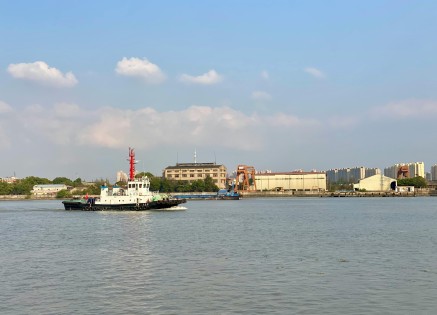Copyright © 2026 lmitac.com All Rights Reserved. Contact - Terms and Conditions - Privacy Policy - Quality Policy - Become an instructor - Vacancies - Sitemap
London Maritime Academy is a trade name for London Premier Groupversion: 2.9.0
London Maritime Academy is a trade name for London Premier Group

Posted On: 5/15/2025, 10:07:17 AM
Last Update: 5/15/2025, 10:07:17 AM
An alliance of clean energy and non-profit organisations that represent 82 parties involved in the green hydrogen and maritime sectors has called on the European Union (EU) to intensify its efforts to combat climate change in the shipping industry.
Notably, the group made the appeal in response to the International Maritime Organisation's (IMO) adoption of new climate measures last month, which it feels are insufficient to meet global climate targets.
High Barriers in the Way of Net-Zero
Seven NGOs and industry alliances, including the SASHA Coalition, Zero Emissions Ship Technology Association (ZESTAs), Nature and Biodiversity Conservation Union (NABU), Carbon Market Watch, Green Hydrogen Organisation, ZERO – Associação Sistema Terrestre Sustentável, and Cittadini per l’aria onlus, criticised the IMO’s recently adopted regulations in a letter to the European Commission and the EU Presidency.
The group claims that although some industry participants referred to the IMO's measures, which were adopted at its Marine Environment Protection Committee (MEPC 83) meeting on April 11, 2025, as “historic,” they ultimately fall short of meeting the IMO's own 2023 climate targets and the 1.5°C Paris climate goal.
Moreover, the group argues that current policies fail to price 90% of shipping emissions and create strong penalties, reducing motivation to transition to cleaner energy sources and limiting funds for cleaner alternatives.
The coalition predicts that the shipping sector will miss 2030 targets and achieve only a 10% reduction in emissions, far below the 30% goal set by the IMO's 2023 Strategy.
Remarkably, the only practical options for reaching net-zero emissions in shipping are green hydrogen and e-fuels like e-ammonia and e-methanol, which are criticised for not being sufficiently supported by the IMO agreement.
The coalition asserted that these fuels still face significant obstacles, including expensive investment costs and constrained production capacity.
Besides, the group warns that early adopters of zero and near-zero fuels may unintentionally benefit polluting alternatives like LNG and biofuels, potentially delaying the transition to clean energy solutions.

A Call for Powerful EU Climate Leadership
The alliance has called on the EU to develop a robust policy roadmap to enhance Europe's industrial competitiveness and growth in the green shipping sector, focusing on four key action points:
Implement financial assistance for e-fuel manufacturers in
2025 as part of the Sustainable Transport Investment Plan (STIP).
Utilise the money to support the development of e-fuels and extend the EU Emissions Trading System (ETS) to include more maritime emissions in 2026.
In 2027, bolster FuelEU Maritime rules by establishing legally binding goals for the use of e-fuel.
Advocate for stricter IMO rules that encourage the use of e-fuel and penalise pollution, in line with the objectives of the EU's Clean Industrial Deal.
Maritime Professional Training offers accredited courses on managing green hydrogen energy projects, evaluating hydrogen technology benefits, and understanding the hydrogen economy.
Aurelia Leeuw, Director of EU Policy at SASHA Coalition, emphasised the need for EU action to scale up the adoption of green hydrogen in the shipping industry, highlighting the potential for the EU to nurture rather than neglect its emerging clean shipping sector.
According to NABU's Lukas Leppert, the IMO's limited actions are a missed opportunity to reduce emissions and lead the green maritime transition, and the EU can rectify this by demonstrating strong climate leadership.
In essence, ZESTAs Secretary General, Madadh MacLaine, warns that the IMO's decision could lead to unsustainable fuel infrastructure investments, urging the EU to support science-based fuel lifecycle analysis and stricter fuel targets.
Read more news: